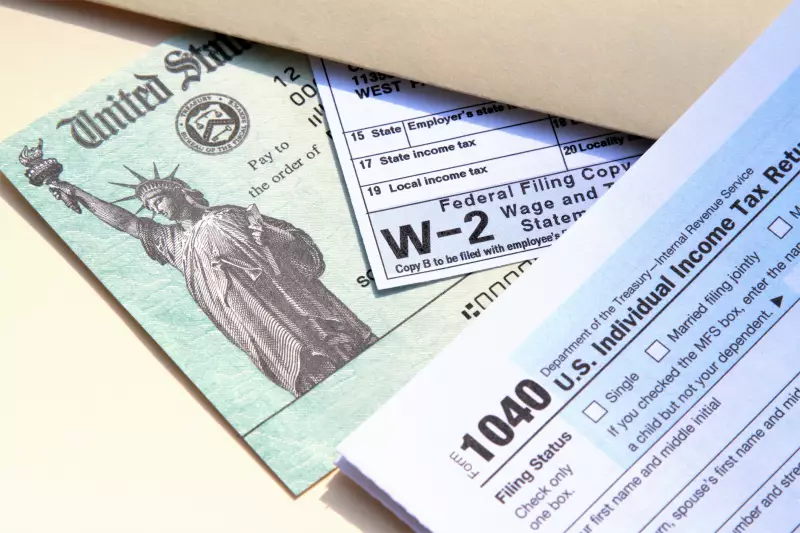How Rental Income Is Taxed and Reported

Table of Contents
- How Rental Income Is Taxed and Reported
- What Counts As Rental Income?
- How Is Rental Income Taxed?
- Rental Income and Self-Employment Tax
- What Expenses Can You Deduct From Rental Income
- How To Report Rental Income On Your Taxes
- Special Tax Situations To Know About
- Tips To Stay IRS Compliant and Maximize Your Return
The IRS defines rental property revenue as ordinary income, which is taxed at regular income tax rates based on your income bracket. Rental income is payments received in exchange for the use or occupation of your property that is considered rent or taxable income.
Anyone who receives rental income from a property they own must report it on their tax return. This mandate applies to landlords, property owners, and anyone who takes tenant-paid expenses instead of cash for the rent.
Property owners can deduct ordinary expenses related to the operation and maintenance of the property in an effort to reduce taxable income.
What Counts As Rental Income?
Rental income is any payment received by the landowner for the use or occupation of the property. Successful real estate investors are always searching for ways on how to pay no taxes on rental income and increase profit.
This includes:
- Normal rent payments: regular payments landlords receive from tenants for use of the property. These payments are consistent and recurring revenue to a landlord, typically on a monthly basis.
- If a tenant pays certain expenses and then deducts those expenses from the rent, landlords must still include any amounts paid as rental income.
- Advance or Prepaid rent, fees, and security deposits paid by the tenant before move-in, such as prepaid rent/lease or mortgage buydown points. Also, if your tenant pays the first and last month’s rental fee to acquire the property.
- Lease cancellation fees are any early termination payments received by the landlord to end a lease agreement early. These fees compensate the landlord for any possible loss in revenue.
- Successful real estate investors understand every key detail of “how is rental income taxed?”
How Is Rental Income Taxed?
One of the most typical questions among new property investors is “Do you pay taxes on rental income?” The IRS considers rental revenue the same as ordinary income; it is added to any other income and taxed according to your marginal tax rate. Marginal rates can run from 10% to 37%.
Landlords use Schedule E, Supplemental Income and Loss, to record rental income, expenses, and depreciation for each property. Use a Schedule E for each property. Schedule C is used for special situations, such as reporting income from a bed and breakfast or hotel.
A special situation exists for the individual who has higher investment revenue and may be subject to the Net Investment Income Tax (NIIT).
The NIIT is a supplemental 3.8% tax for Medicare that applies to higher-income individuals, estates, and trusts. Based on filing status, these incomes exceed the Modified Adjusted Gross Income (MAGI) thresholds.
- $200K for single filers
- $125K for married filing separate taxpayers
- $250K for married filing jointly or a qualifying survivor
Rental Income and Self-Employment Tax
The IRS considers rental income as passive, while self-employment income is earned through active management. If landlords simply collect rent through long-term rental agreements without any active management, rental income will not be subject to self-employment tax.
How is rental income taxed when you have a mortgage? Rental income is still considered passive, but you are allowed to deduct mortgage interest as an expense, which can reduce your taxable rental income.
Situations can change depending on the services a landlord provides. Rental income is taxed on a cash basis, which means your income is taxed in the year it is received and deducted in the year paid.
Exceptions:
- Those professionals whose jobs are in Real estate may consider parts of rental income as self-employment tax if the activities are part of their business plan.
- The landlord provides substantive services above and beyond just renting the property, such as concierge and active cleaning.
- Short-term rentals, such as Airbnb, where the property is treated like a business. Any losses from rental properties can only be used to offset other passive income sources, such as income from additional rental properties.
What Expenses Can You Deduct From Rental Income
It is vital for every landlord to keep precise records detailing every expense a rental property may incur. Operating expenses for rental income properties continue to rise, especially the need for electricity. Fewer landlords are capitalizing on the myriad of opportunities available to landowners through proper expensing methods.
- Mortgage interest is typically the largest deduction a landlord can apply to reduce their taxable income. In addition to mortgage interest, landlords can deduct prepayment penalties, late payment charges, and a percentage of the points used to acquire the loan.
- Most landlords understand that personal property can be depreciated on their returns. However, individual items such as refrigerators and carpeting can be depreciated faster if used exclusively for the rental property. Improvements that add value should be depreciated rather than deducted.
- Eviction is often a landlord’s nightmare, yet property owners should understand that they can deduct court and attorney costs.
- Operating expenses and maintenance are deducted in the year you purchase the item. Cash Method. Maintenance items are sticky points with the IRS, so homeowners may be tempted to put their typical building maintenance items in the repair category.
- Property owners can deduct the costs of keeping the property in good working order, such as maintaining appliances, fixing leaks, and painting.
A homeowner cannot depreciate their primary residence. Properties that produce income can be depreciated by 1/27th each year. The IRS allows a building (not land) to be depreciated over a period of 27.5 years.
How To Report Rental Income On Your Taxes
If you are new to the intricacies of rental income, unsure about what expenses to deduct, or there are complex situations to deal with, the first course of action is to consider hiring a tax professional.
Decide on how to report rental income on taxes, either on a cash basis (used most often by landlords) or the accrual approach. The Cash method reports income when received and deducts expenses when they are paid. The Accrual strategy reports income when earned, regardless of when they are received.
Gather all your deductible receipts and documentation for the current tax year. Good record-keeping is essential for every landlord to prosper. Keep detailed records of rent received, expense receipts, and invoices. Track each dollar of every security deposit received.
If you are wondering how much rental income is taxed, it generally depends on your total taxable income and tax bracket. Rental income is taxed as ordinary income after qualifying deductions.
Most landlords report income and expenses on Schedule E (Form 1040) Supplemental Income and Loss. Use additional Schedule E forms to report multiple rental units. On each form, add the property’s address and total income, deductible expenses, and depreciation.
Special Tax Situations To Know About
Rental property income introduces an aspect of tax reporting that combines personal and business revenue, security deposits, depreciation recapture, and more. This combination then begs the question, “How rental income is taxed in an LLC?” The answer depends on the organization's structure. LLC income is taxed at pass-through rates.
- Short-term home rentals, such as those provided on Airbnb, feature a unique reporting requirement: the 14-day rule. Homeowners who rent their homes for fewer than fourteen days are exempt from reporting their income.
- Vacation homes are another unique reporting feature for rental properties. The distinction comes in the number of days the home is used as a personal or vacation home. Keep detailed records and allocate expenses carefully.
- The IRS allows a landlord to depreciate a residential building (Not Land) over 27.5 years. When the property is sold, the IRS recaptures the depreciation as ordinary income up to a rate of 25%.
- Rental income losses are passive and are used to offset other passive income. The IRS allows for $25,000 of passive losses to be used against non-passive income. (W-2 or business income)
- Family rentals must be treated as fair market value transactions, or the IRS deems the proceedings as used for personal use rather than rental activity.
Tips To Stay IRS Compliant and Maximize Your Return

One of the first and always critical aspects of rental properties is keeping detailed records and tracking everything. It’s the Marine Quote: In God We Trust, all others we track.
Set up and maintain an optimum organization strategy for every transaction. Good record-keeping means IRS compliance, along with the ability to claim much-needed deductions.
Use a separate bank account for rental property income and expenses, and never co-mingle funds. A separate bank account makes it easier for the landlord if the account is audited.
Navigating the current Tax waters is overwhelming at best. Never go into the season without a competent Tax advisor or lawyer. Make certain the advisor is current with the latest IRS regulations, including activity loss and depreciation recapture.
Choose the right depreciation model:
- Straight-line Depreciation: The cost of the asset is spread evenly over a fixed period of time and over its useful life.
- Production Unit Depreciation: This model is used when an asset's wear and tear is directly related to its depreciation.
- Accelerated Depreciation: Allows a business to depreciate an asset in the early years and use the straight line method in later years.
Track depreciation correctly and understand two or three of the fundamentals, such as Book value, Accumulation/depreciation, and Expense. The IRS requires rental income to be reported on your tax return using Schedule E. Filing late leads to penalties and interest, which is never a good thing with the IRS.
Use IRS publication #527 for all the information you will need on how to deal with this agency and your rental property.
Search Property & Deed Records
Table of Contents
- How Rental Income Is Taxed and Reported
- What Counts As Rental Income?
- How Is Rental Income Taxed?
- Rental Income and Self-Employment Tax
- What Expenses Can You Deduct From Rental Income
- How To Report Rental Income On Your Taxes
- Special Tax Situations To Know About
- Tips To Stay IRS Compliant and Maximize Your Return










